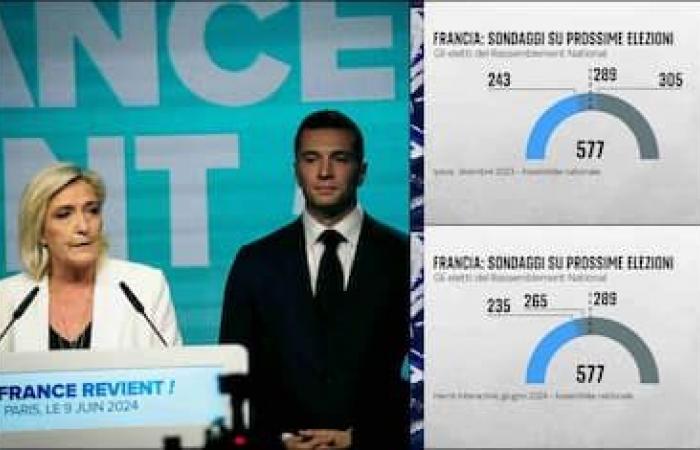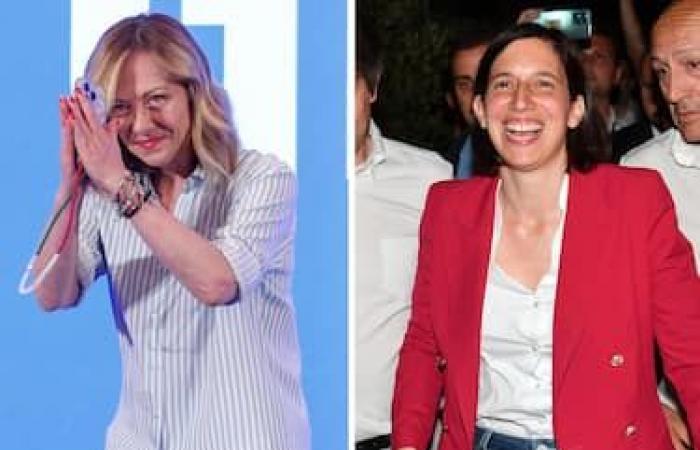Once the European elections have passed, there are three questions that the near future will have to answer.
1. What are the most important negotiations now underway in Europe to shape the political direction of the next five years?
2. Is the wall that divided the center from the far right falling?
3. Will Ursula Von der Leyen manage to remain at the head of the European government or will she eventually give way to others who may be more popular than her, but as popular as her?
The three questions are actually a single question that can be more easily and vulgarly summarized as: “What’s happening now?”. These days there are two types of negotiations going on. The first is between heads of government, the other between the political forces of the new European Parliament.
Negotiations between Leaders
As regards the first, already from the G7 in Puglia, Meloni, Macron and Scholz must understand what names to propose for the next European Commission. Whether or not to re-propose von der Leyen as president, knowing that the final choice on the name of the President of the Commission will be made by Parliament by electing him by majority. The point is that if Giorgia Meloni is strong in the consensus she had at the European elections and certain of the stability of her government, Macron and Scholz arrived in Puglia still sounding the sounds of the voters. They are quite weak and busy resolving their internal political dynamics. Scholz cannot object to the name of his compatriot von der Leyen. Macron, who doesn’t love it, probably doesn’t now have the strength to change the cards on the table and impose his own candidate. And Meloni, despite winning electorally, knows that if she wants to achieve something in Europe and give weight and power to Italy and herself she must continue to make compromises and not remain relegated to the world of the far right to which she belongs. Supporting the current president of the Commission for an encore as head of the Italian government could, in the event of her election, earn her an important role as mediator in the future, especially with the weakened French and German governments, and allow Italy to have important commissioners in the next EU Commission.
read also
Salvini and Le Pen, agreement to unite right-wing parties in the new European Parliament
The dances of the European parties
The second type of negotiation underway is that between the political families of Europe. Thanks to Le Pen, the European sovereignists of Identity and Democracy have grown compared to five years ago. And so do the European Conservatives thanks to Fratelli d’Italia. But they are two distinct groups, substantial but still a minority, which do not seem to be able to unite. If they did so they would become the second political group in Parliament after the Popolari and could participate in majority coalitions. But for now the EPP has no intention of allying itself with the sovereignist far right of Le Pen or the Dutch Wilders. The right still has to do some internal cleaning, it has done a lot by expelling the Germans of the AfD considered unpresentable and pro-Nazi, but for many it is not enough.
After all, never say never. Recent news reports that in France the Republicans, the moderate right, are splitting because their leader has chosen to ally himself with the Rassemblment National of Le Pen and Bardella in the next early elections. And that in Germany, in the Land as in Saxony and Thuringia, the People’s Party of the CDU are thinking of allying themselves with the far right of the AfD which won the elections by a landslide in those regions. In short, what was unthinkable just a few years ago, what for example Angela Merkel considered unheard of, that is, the alliance between the moderate center and the xenophobic and extremist right is now a concrete political hypothesis.
If this were to happen, as it has happened in Italy for years, even in the Strasbourg Parliament we could witness alliances once considered out of reality.
read also
France, will the next government be led by the Rassemblement National?
The time factor
Precisely to prevent this from happening, there are those who are pushing not to drag out the election of the next president of the Commission too long.
Popular, Socialists and Liberals, who on paper have the majority, could force their elected representatives to vote for Von der Leyen by asking them not to betray the secrecy of the ballot box, precisely so as not to give space to other scenarios of alliances towards the right.
If they fail to do so, in short, if the German president is not elected or the vote is postponed until September, then no one can rule out the possibility of new names emerging in her place. For example, that of Roberta Metsola, also popular, outgoing president of Parliament, in excellent relations with many colleagues on both the right and the left, Maltese but very close to Italy and Antonio Tajani, and certainly well regarded also by the conservatives of Giorgia Meloni.
In short, everything can still happen. It is certain, however, that the political earthquake that occurred in France and Germany is inevitably having repercussions on the complex dynamics of European politics.







